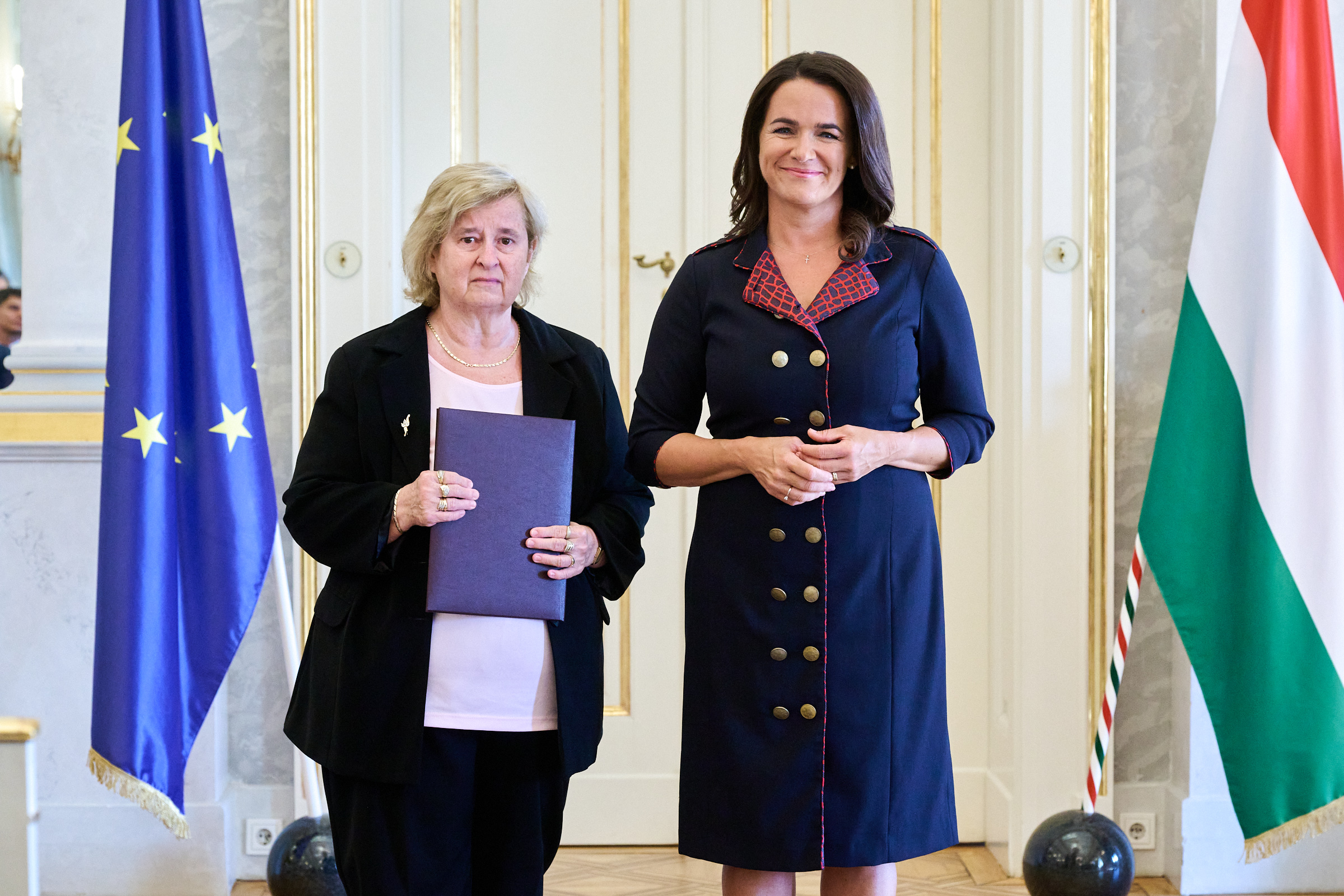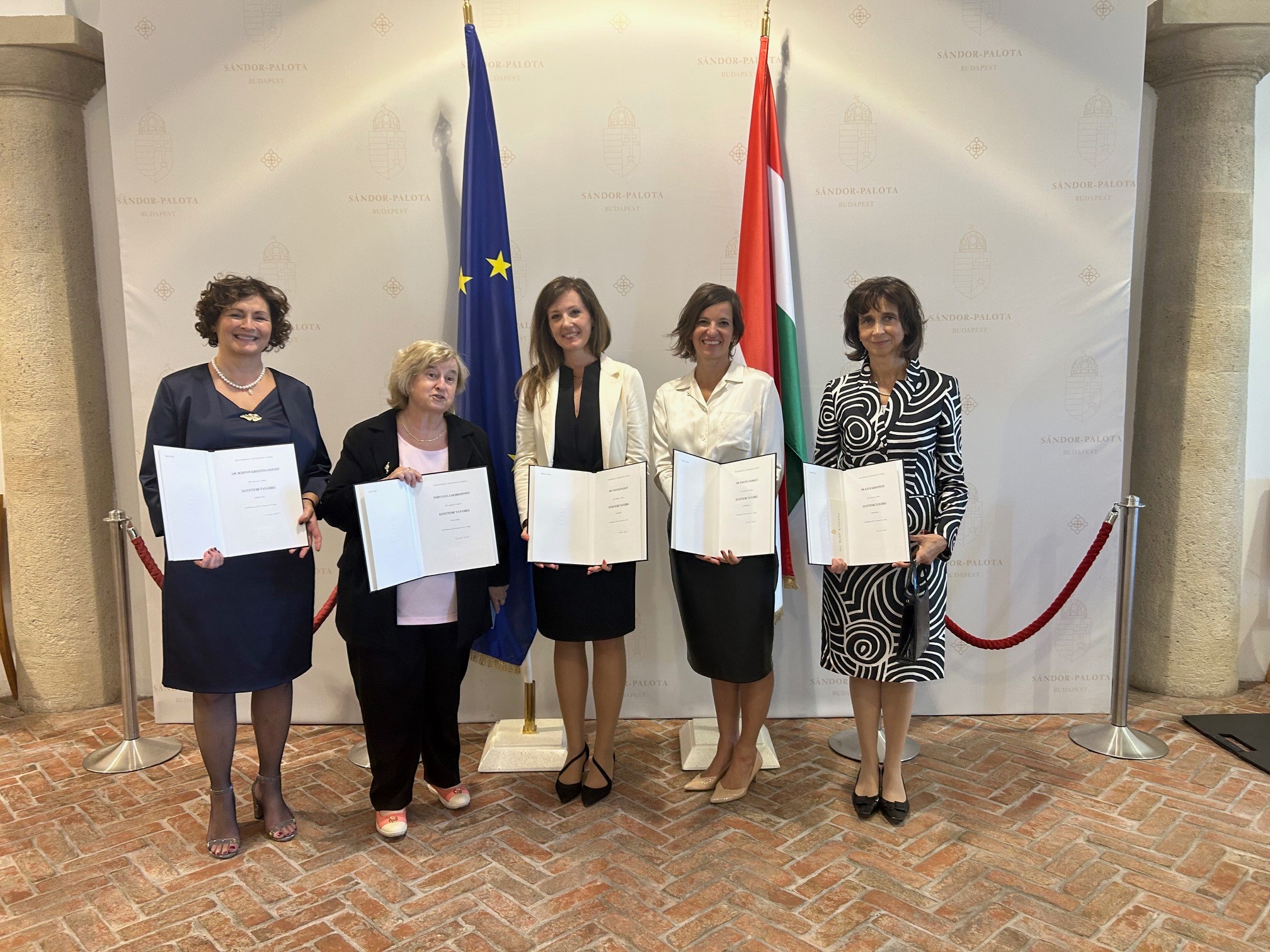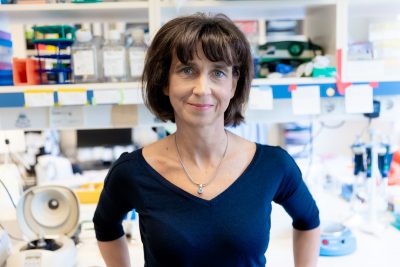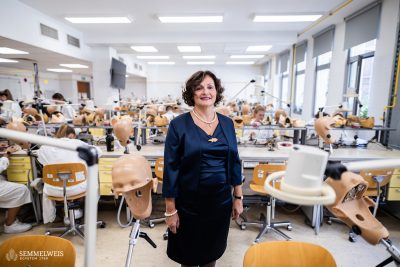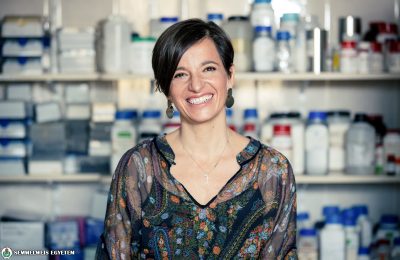What does university professorship mean to you?
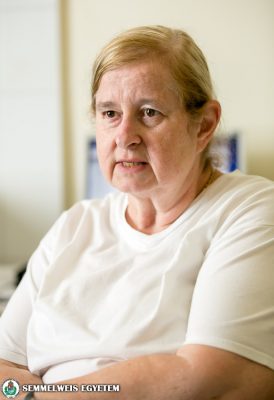 I have 47 years of experience under my belt, but I didn’t work for the appointment, I just kept moving forward. The professorship became a certainty when, at the end of the application process, I received an invitation to the President of the Republic. It was only then that I dared to believe that it had become a reality, until then I hadn’t been following the appointment process closely. This is clearly the pinnacle of my career. After 17 years as an associate professor, you have to get used to the change – but it’s very easy to adapt to the new situation.
I have 47 years of experience under my belt, but I didn’t work for the appointment, I just kept moving forward. The professorship became a certainty when, at the end of the application process, I received an invitation to the President of the Republic. It was only then that I dared to believe that it had become a reality, until then I hadn’t been following the appointment process closely. This is clearly the pinnacle of my career. After 17 years as an associate professor, you have to get used to the change – but it’s very easy to adapt to the new situation.
Which of your scientific achievements are you the most proud of?
I started my career as an assistant nurse in the department in 1976 and worked there as a nurse during my university years and as a doctor since 1983. In 1985, the otoneurology outpatient unit was set up at the department and I have been its director since 1989. Since then, we have developed our medical specialist center into a national outpatient clinic equipped with computerized examinations – something I am very proud of. I am also proud of being the first female professor of otorhinolaryngology in Hungary. Thanks to my achievements in otoneurology, since 2014 I have been the president of the Neurootological and Equilibriometric Society (NES), a prestigious international society dedicated to the study of the balance system and its associated diseases. I was the first in Hungary to start working on balance rehabilitation: patients with vertigo can be helped not only with medication, but also with balance training and exercise, which significantly improve their quality of life.
Where did your interest in vertigo patients come from, what led you to this field?
It was actually by chance that I’ve found it. My former mentor, Dr. Judit Nádor, was doing balance tests. At that time, with neither mobile phone nor internet, if I had any questions, I had to go to my supervisor in person, who happened to be an educator by nature. “Look at this abnormal eye movement,” she always showed me what she was doing. In 1989 she went abroad to become chief physician and I inherited her position. I fell in love with the field and saw the potential in it, so much so that after passing my ear, nose and throat specialist exam, I took the neurology specalist exam as well in 1996, making me the only person to this day in Hungary with both of these qualifications. And as a third one, I passed the audiology specialist exam, too.
How did you manage to find time for academic work alongside your family, and how did you maintain a work-life balance?
My husband is by my side in everything, he’s my backbone I can always count on. We share a very happy and harmonious life together. My grown-up son is a sports journalist and he supports me in all matters. Balancing work and private life has not been easy, it has taken a lot of adjustment on my family’s part, but they have always supported me wholeheartedly. Swimming is my main source of relaxation: I start every working day morning at the swimming pool and come to work from there. It’s relaxation, me-time and a hobby at the same time, and it’s also beneficial to my health.
You are the first female professor in the more than 110-year history of the Department of Otorhinolaryngology, Head and Neck Surgery. How does this pioneering role make you feel?
I am still moved when I am asked to talk about it. My colleagues have all congratulated me, but it is also a particularly good feeling because Vilma Hugonnai, the first Hungarian female medical doctor, has been my role model since my childhood.
This year, a total of five women were among the appointed new professors at Semmelweis University, which is the highest number in recent years. Several staff members who recently received the title are pioneers in their clinics and institutes, i.e. they are the first female university professors. You can soon read interviews with all five of them in our new series, starting with Dr. Hajnalka Vágó.
Ádám Szabó
Translation: Judit Szabados-Dőtsch
Photo: Attila Kovács — Semmelweis University, Gyula Bartos — Sándor Palace (featured image)
